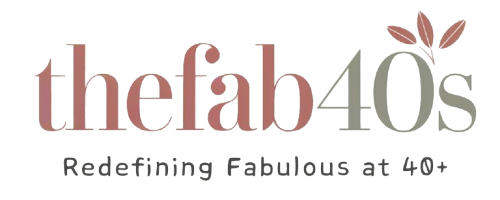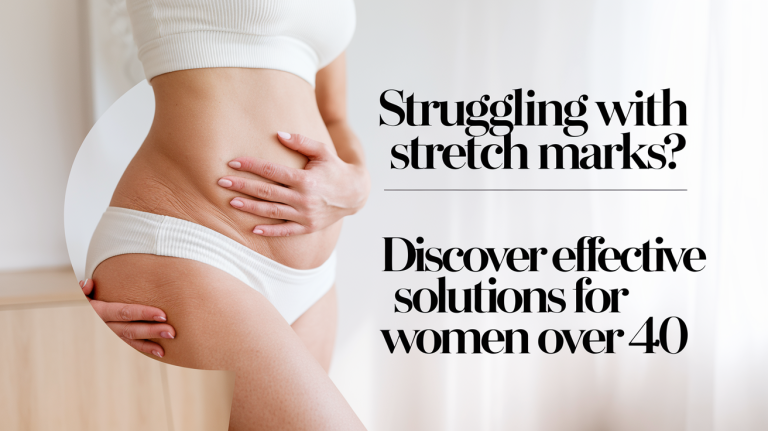Self-Care Routine for Women Over 40
This page may contains affiliate links. We may earn a commission for purchases made at no additional cost to you. The content on this website was created with the help of AI.
Life’s whirlwind often blinds us to the passing years. Before we know it, we’re celebrating 40 birthdays. At this stage, self-care becomes crucial. It’s not just a suggestion but a vital part of our daily lives.
Many of us focus on our families’ wellbeing, forgetting our own. It’s essential to prioritize health over 40. Every day brings challenges, but also chances for renewal and vitality.
We’re often caught up in caring for others. Whether it’s our children, partners, or parents, we do it with love and responsibility. Yet, we must remember that our own wellbeing is the foundation of all care.
Women’s wellness is not a luxury but a necessity after 40. It’s time to add joy and enrichment to our lives, tailored just for us.
Our health, spirit, and essence are our most valuable assets. Self-care is not one-size-fits-all but a bespoke suit tailored to our individuality. It’s about adding life-affirming activities and distancing ourselves from what dims our light.
Let’s create a self-care routine that is sustainable, adaptable, and forgiving. It should listen to our bodies and souls.
In life beyond 40, let self-care be a central melody, not an afterthought. This is the key to enduring vitality. Women’s experiences show us that deep rest and radiant health are our birthrights.

Key Takeaways
- Self-care transcends trend; for women over 40, it’s a vital component of life’s symphony.
- A personalized approach to self-care ensures practices are a source of joy, not a checklist of chores.
- Building a self-care routine is a continuous dance; embrace the flow, complete with its ebbs and falls.
- Listening to one’s body and mind allows for a self-care routine that resonates with deep-seated needs.
- Adequate sleep and nutrition are the cornerstones of health optimization for women over 40.
- Regular physical activity and consultation with healthcare providers uphold a pillar of preventive health care.
- An effective self-care strategy involves a delicate balance between indulgence and structure, understanding the nuances of aging.
Tapping Into Your Prime: The Essentials of Self-Care in Your 40s
Starting your 40s is a big change. It’s a time for growth and learning. Taking care of your prime health and finding a good life balance will help you enjoy this decade. It’s key to focus on the wellbeing essentials for 40s.
This decade brings changes, like new roles and a slower metabolism. It’s important to eat right, exercise regularly, and watch for signs of menopause. These steps will help you stay healthy and feel good.
- Adjusting your diet to meet nutritional needs that change with age.
- Creating an exercise routine that accommodates your evolving body.
- Monitoring for perimenopausal changes early to manage symptoms with ease.
Seeing a doctor regularly is a good idea. They can help you make a plan that’s right for you. They’ll guide you on keeping healthy during these changes.

Everyone’s journey is different. We create a community to support each other in self-care. Taking care of yourself in your 40s is about more than avoiding problems. It’s about living a full, active life.
By focusing on these wellbeing essentials, we build a balanced life. This approach improves your life now and prepares you for the future. It’s a way to live fully and stay healthy.
Emphasizing Nutrition and Exercise for Weight and Well-being
We know how important balanced nutrition and physical exercise are for women over 40. Making lifestyle changes can help manage weight and improve overall health. We focus on eating healthy foods and exercising regularly.
Creating a Balanced Diet Rich in Essential Nutrients
Eating the right foods is key to fighting aging. A balanced diet helps with weight control and prevents nutritional gaps. It should include lean proteins, whole grains, low-fat dairy, and lots of fruits and veggies.
These foods are full of carotenoids and antioxidants. They help prevent diseases and boost health.
Studies show that eating healthy can help you age better. It improves your mind, mood, and body.
Incorporating Regular Physical Activity to Slow Metabolic Decline
Regular physical exercise is vital for metabolic health. For effective weight management, do at least three 30 to 60-minute cardio sessions a week. Add two weight training sessions for muscle strength.
| Week | Activity Type | Frequency |
|---|---|---|
| 1-4 | Cardio (Aerobic) | 3 sessions/week |
| 1-4 | Strength Training | 2 sessions/week |
| 1-4 | Rest Days | 2 days/week |
This routine boosts both aerobic capacity and muscle strength. It helps slow down the natural decline in metabolic rate, leading to a more active and vibrant life.
Fostering Bone Health: Importance of Vitamin D and Calcium
Keeping bones strong is key, especially as we get closer to menopause. For women in their 40s, getting enough Vitamin D and calcium is crucial. Research shows that women hit their bone peak in their late 20s to early 30s. After that, it’s important to eat well and make lifestyle changes to keep bones strong.

Getting enough Vitamin D and calcium is vital. They help prevent osteoporosis, especially when estrogen levels drop during menopause. A big study followed 148 women aged 40 to 60. It showed that those with higher calcium intake had better bone health.
“A focus on Vitamin D and calcium isn’t just about today’s health; it’s about safeguarding our bodies for a future where we continue to thrive.”
- Calcium is known for strengthening bones.
- Vitamin D helps the body absorb Calcium, which is key for bone health.
But, many middle-aged women don’t get enough of these nutrients. This can lead to osteoporosis and fractures. Eating foods rich in Vitamin D and calcium and possibly taking supplements can help prevent bone loss.
Also, women have a 53.2% lifetime risk of fractures if they have untreated osteoporosis. This risk is higher in Latino and other minority groups. So, it’s more important than ever to focus on bone health.
In short, eating foods rich in Vitamin D and calcium is essential. It’s not just good for bones; it’s necessary for a healthy and active life.
Preparing for Menopause: Understanding and Managing Symptoms
Women in their 40s and 50s need to prepare for menopause. It’s a natural stage that can be managed with confidence. Knowing the changes and symptoms is key. This includes understanding perimenopausal symptoms and the role of hormone therapy.
This preparation helps manage symptoms and improve life quality. It’s important for a smooth transition.
Recognizing and Addressing Perimenopausal Changes
Perimenopausal symptoms vary but often include hot flashes and mood swings. These signs mark the start of menopause, a phase lasting 1 to 10 years. It usually ends between 45 and 55.
It’s important to watch for irregular bleeding and talk to a doctor. A healthy lifestyle can help ease these symptoms.
Exploring Hormone Replacement Therapy (HRT) and Other Treatments
Hormone therapy is the most effective treatment for menopausal symptoms. The FDA recommends estrogen therapy (ET) and Estrogen Progestogen Therapy (EPT) for different needs. ET is for women without a uterus, and EPT is for those with one.
Other options include lifestyle changes and non-hormonal meds. Regular exercise and a balanced diet can also help manage symptoms.
Preparing for menopause with lifestyle changes and medical advice is key. Hormone therapy can also be an option. Being informed and managing symptoms can help women live vibrant lives.
Annual Health Screenings: Your Blueprint for Preventive Care
Preventive care is crucial as you get older, especially in your fabulous 40s and beyond. It’s important to have annual health screenings. These include general wellness and OB/GYN care to keep you in tune with your body.
Preventive health screenings are key for detecting illnesses and keeping you well. They include blood pressure, cholesterol levels, mammograms, and cervical cancer screenings. These tests help find health problems early, leading to better treatment.
Health screenings are a big part of OB/GYN care, focusing on women’s health. Regular visits to your OB/GYN are not just for current issues. They help protect against future health problems.
Remember, preventive care is not just a medical routine; it’s a commitment to your lifelong health.
Annual health screenings also play a big role in mental health. It’s as important to check for signs of stress, anxiety, or depression as it is for physical health. Adding mental health screenings to your annual check-up can greatly improve your life, offering early help and support.
- Cervical Cancer Screenings: Advised annually to detect early signs, particularly important as you age.
- Mammograms: Essential for early detection of breast cancer, recommended yearly for women over 40.
- Blood Pressure and Cholesterol Checks: Vital for preventing heart disease, these should be part of your routine health screenings.
We believe in these screenings as a key part of preventive health care. Regular check-ups give you important information about your body. They help you make changes to your health and lifestyle. This proactive approach can lead to a healthier, happier life, reducing risks of diseases that come later.
We at [Your Company Name] are here to guide you every step of the way. We want to make sure you get the care, support, and information you need. Together, we can make your later years the best years of your life.
Prioritizing Quality Sleep and Its Impact on Overall Health
In our 40s, quality sleep is key to staying healthy and feeling good. Getting enough rest and using restorative sleep strategies is vital for our hormonal health. A good sleep routine is not just about avoiding tiredness. It’s about building a strong base for our health and energy.
Sleeping 7–9 hours a night is crucial for our daily life and health. For women over 40, it’s especially important. They face big hormonal changes that sleep can help manage.
Strategies for Achieving Restorative Sleep Every Night
To get good sleep, start with a regular bedtime routine. Make your bedroom calm, avoid screens before bed, and try relaxing activities like reading or meditation. Staying in sync with your body’s natural sleep cycle is also key.
Understanding the Link Between Sleep and Women’s Hormonal Balance
Sleep and hormones are closely connected. As estrogen and progesterone levels change, so does sleep. Good sleep helps keep these hormones steady, reducing symptoms like mood swings and hot flashes.
| Aspect | Impact | Strategy |
|---|---|---|
| Bedroom Environment | Enhances sleep quality | Optimize bedding, temperature, and noise levels |
| Pre-sleep Routine | Reduces time to fall asleep | Avoid screens, caffeine, and create calming rituals |
| Consistency in Sleep Schedule | Regulates body’s clock | Maintain regular sleep and wake times |
By focusing on restorative sleep strategies, we can improve our health and wellbeing. Creating sleep-friendly environments and habits is essential. Let’s make these practices a big part of our self-care, so our bodies can rest and recover every night.
Eating for Longevity: The Power of a Colorful, Nutrient-Dense Diet
Exploring a longevity diet means eating a variety of colorful, nutrient-rich foods. This not only makes our meals look good but also boosts our health. Imagine eating a mix of bright berries, vibrant greens, and hearty beans. These foods are packed with vitamins, minerals, and antioxidants that are key for staying healthy for a long time.
Why choose such a variety? Research from places like Harvard and Johns Hopkins shows that eating lots of plant-based foods is good. It helps lower heart disease risk, keeps cholesterol healthy, and fights inflammation.
Eating colorful fruits like blueberries and strawberries, and veggies like kale and spinach, is tasty and good for our brains and bones. Foods like lentils and chickpeas, common in diets of people who live long, are full of fiber and protein. Each part of this longevity diet helps us live healthier and longer.
| Nutrient | Source | Health Benefit |
|---|---|---|
| Fiber & Protein | Legumes (Lentils, Chickpeas) | Improves cholesterol and blood sugar levels, increases satiety |
| Antioxidants & Polyphenols | Berries (Blueberries, Strawberries) | Reduces inflammation and enhances cognitive function |
| Monounsaturated Fats | Avocados | Decreases risk of heart disease, reduces inflammation |
| Essential Amino Acids | Hemp seeds | Supports heart health and reduces inflammation |
Adding these powerful foods to your daily meals does more than just satisfy your taste buds. It greatly improves your health, leading to a more vibrant future. Let’s choose the richest, most colorful foods nature has to offer. This way, we can keep learning, adapting, and enjoying the journey of healthy eating.
Mitigating Stress with Daily Practices of Peace and Calm
Life gets complex, especially in our 40s and beyond. Finding daily peace and stress reduction is crucial. Mindfulness, yoga, and meditation can greatly help. They’re not just activities; they’re life-changing practices that lead to clarity and calm.
Incorporating Mindfulness and Relaxation Techniques Into Your Day
Mindfulness is a way of living. It helps women over 40 stay emotionally strong. By focusing on now and accepting it, we can better handle stress. Mindfulness offers a break from daily life, reducing stress and finding balance.
Benefits of Yoga and Meditation for Stress Reduction
Yoga and meditation improve both body and mind. Yoga eases physical tension, while meditation clears mental clutter. Together, they fight stress, promoting a healthier life for women over 40.
| Aspect | Impact on Stress |
|---|---|
| Regular Yoga Practice | Decreases stress hormones, increases relaxation |
| Daily Mindfulness | Improves focus, reduces reactionary stress responses |
| Consistent Meditation | Enhances emotional control, fosters mental clarity |
| Lifestyle Adjustments | Boosts overall well-being, reduces health risks |
Mindfulness, yoga, and meditation are key to managing stress and improving well-being. By adding them to your daily routine, you take a proactive step towards a healthier, happier life.
Maintaining Flexibility and Strength Through Targeted Exercise
As we age, keeping our flexibility and strength is crucial, especially for women in their 40s and beyond. Doing targeted strength training and following adaptive exercise plans can greatly improve our health. It helps us smoothly go through perimenopause and menopause and lowers the risk of chronic diseases.
The Role of Physical Activity in Women’s Health Transitions
Exercise is more than just keeping weight in check during this time. It’s about balancing hormones and keeping our minds healthy. Strength training helps keep muscle mass, which decreases with age. It also boosts metabolism and strengthens bones, which is key in our 40s when osteoporosis risk increases.
Regular exercise also helps reduce symptoms like hot flashes and mood swings. This is thanks to better hormone balance and stress relief from endorphins.
Adapting Your Exercise Routine for Different Life Stages
It’s important to adjust our exercise plans as we age. This might mean adding more low-impact activities like yoga to improve flexibility. Or, we might focus on heart health with more cardio workouts. Understanding our body’s changes helps us set the right fitness goals.
Here are some strategies for mixing up our workouts at different ages:
| Age Range | Recommended Exercise | Benefits |
|---|---|---|
| 40-50 years | Resistance Training & Pilates | Builds core strength, improves posture, maintains bone density |
| 50-60 years | Aerobic Exercises & Strength Training | Enhances heart health, manages weight, reduces menopause symptoms |
| 60+ years | Low-impact Cardio & Flexibility Workouts | Decreases joint stress, increases flexibility, promotes longevity |
Adding these exercises to our routines meets our physical needs and boosts our emotional well-being. The secret to aging well is to keep moving and adapt our workouts to our changing bodies.
Regular Medical Checkups: Your Gateway to Sustained Health
As women enter their 40s, regular medical checkups become key for women’s health maintenance. These visits help manage health proactively, ensuring well-being and empowerment. Routine exams lead to early detection and better health risk management.
Health experts, like primary care providers and OB/GYNs, suggest important screenings for women in their 40s. These screenings check overall health and focus on prevention. They help women make informed choices for a healthier lifestyle.
| Screening Type | Recommended Age | Frequency | Average Cost |
|---|---|---|---|
| Pap Smear | 21+ | Every 3-5 years | $25-$100 |
| Mammogram | 45+ | Annually | $100-$250 |
| Blood Pressure Check | 18+ | Annually | Usually covered by insurance |
| X-rays | Varies | As needed | $100-$1,000 |
These medical checkups are beneficial in many ways. They catch problems early, offer treatment options, and increase cure chances. They also help control health costs by addressing issues early.
In summary, medical checkups are more than just visits. They are crucial steps towards a healthier life for women over 40. By staying on schedule with screenings and being proactive about health, we fight aging’s unpredictability. This ensures a vibrant, active life beyond 40.
Building a Self-Care Routine Tailored to Your Unique Life Journey
At the heart of sustaining vitality and happiness beyond our fabulous forties lies the essence of personal self-care. Our health journey is deeply personal and special. It needs a customized wellness approach that’s as unique as you are.
It’s not about one-size-fits-all solutions. It’s about creating a self-care regime that fits your current stage in life. It should meet your body’s needs and your spirit’s desires. This mindset helps us design self-care routines that celebrate our individuality.
We suggest starting with honest reflection and SMART goals. This gives structure to our aspirations. From expert contributions and Dr. Shane Lopez’s Hope Mapping, we create a self-care plan.
This plan balances physical sustenance with emotional nourishment. It includes activities that strengthen us against life’s stressors. Imagine using discounted essentials like Albolene Moisturizing Cleanser or Neutrogena Hydro Boost Hydrating Gel Eye Cream. These choices make you feel great without being extravagant.
Let’s be strategic. We start routines that fit into our daily lives, leaving room for adjustments. A new skin-care collection for under $150 is both economical and empowering. From Vichy LiftActiv Vitamin C Brightening Face Serum to Jordan Samuel Skin Hydrate Facial Serum, each choice is a self-affirmation.
Social connections, journaling, and learning are key parts of our self-care. They reinforce our commitment to well-being. Whatever your routine, the key is to care for yourself in a way that’s joyful, intentional, and full of self-love. This ensures each step on your health journey is taken with confidence and grace.







